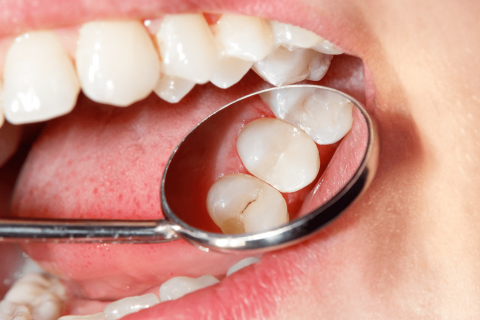Dental fillings replace parts of a tooth that has been damaged due to injury or decay. Also known as dental restoration, a filling preserves the integrity of the tooth and prevents further damage from cavities. Fillings can restore the chewing surfaces of teeth that have become worn. Avoiding damage from decay or injury is preferable, but fillings are a good way to prevent the eventual loss of a tooth. Most cavities and fractures that are caught early are good candidates for restoration with fillings.
At High Street Dental, we use only bonded composite (tooth coloured) fillings which achieve the best aesthetic and long-lasting results. These days many patients visit our dental practice opting to have their old amalgam (metal) fillings replaced with more aesthetic composite fillings.


